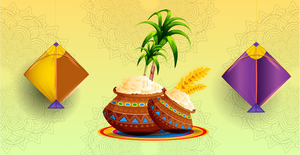Yesterday, I received a forwarded message on a WhatsApp group, which was about a climatic phenomenon (Aphelion phenomenon), and the message claimed it would be colder this year than last. My curiosity and my critical thinking awoke, and I asked Google, and the truth was that this phenomenon happens every year, and the message is false. All it took was 2 minutes of my time and a bit of curiosity to look if the message was indeed true. I used my discretion to uncover the truth for myself and communicated to the group that the news is false. After a few hours, I was surprised to see the same forward in another group by a very intelligent friend of mine. For a few seconds, I did get irritated, but then sense prevailed, and I started to contemplate writing this blog. Whenever we agree to what we hear or what we see, do we question the validity or the authenticity of it, or do we just blindly believe and agree?
After a day, another realisation happened. I was chanting a Shiva Thandava Sthotra, and there is one word "mathirmama" which I was unsure of whether it is right because many video sources on YouTube said "rathirmama". Now, a question arose in my mind: should I agree with the source I had found as authentic, which was only one source or the YouTube videos, where many videos say "rathirmama"? The automatic brain said, since many videos are saying "rathirmama", let's agree with that, because my mind is also programmed to agree with the majority or the consensus. What if the majority is wrong? What should I do? My inner voice says, It's safe to agree with the majority since it sounds familiar and a bit more certain.
In the pursuit of certainty and familiarity, humankind has diverted towards consensual understanding. This type of understanding comes from the fear of being abandoned or rejected by the community or society if what is largely agreed upon is questioned, which is what critical thinkers do. Most of our criticisms are happening either within ourselves, claiming how not good enough we are or in the form of complaining or cribbing. This is the Inner Critic that stops us from disagreeing with something that the majority believe, even when we think otherwise, because we don't want to be left alone, away from society. Are we all so afraid of ourselves or over-dependent on society that we are ready to kill our authenticity to belong?
There is a minority of people who stand alone and rebel against the standard norms of society, who are called the Critical Thinkers. However, the percentage of such thinkers is meagre since it requires immense courage and resilience to be one. Such thinkers are very rare since our education system also doesn't like children who question. And so we are raised with an instruction to "not question educators or authorities" which then becomes our inner voice. But, my question is, if the existing standard or norms or culture is not questioned, how can change and progress be possible? So the difference between inner critic and critical thinking is that inner critic, even though it protects, limits progress, but critical thinking can help cultures and societies move forward and progress to a new milestone.
The courage to go beyond the inner voice and critic, and actually question the workability of a widely accepted belief or standard, is something that I want to do. My inner critic says, "What will people think?", and I say, "Let them think what they want to think, at least I will be fulfilled for having lived my truth". Leaders who are outrageous do it on a bigger platform, like politics, environmentalists, or activists, but I shall do it by listening to people's rudimentary standards, acknowledging them, and then subtly questioning the validity in their present life and making them think. This is my path to bringing a change and leaving my mark in this big, busy world. What's your path?
Dr. Padmashree G S
BHAAVTHARANG - where authenticity meets safety










